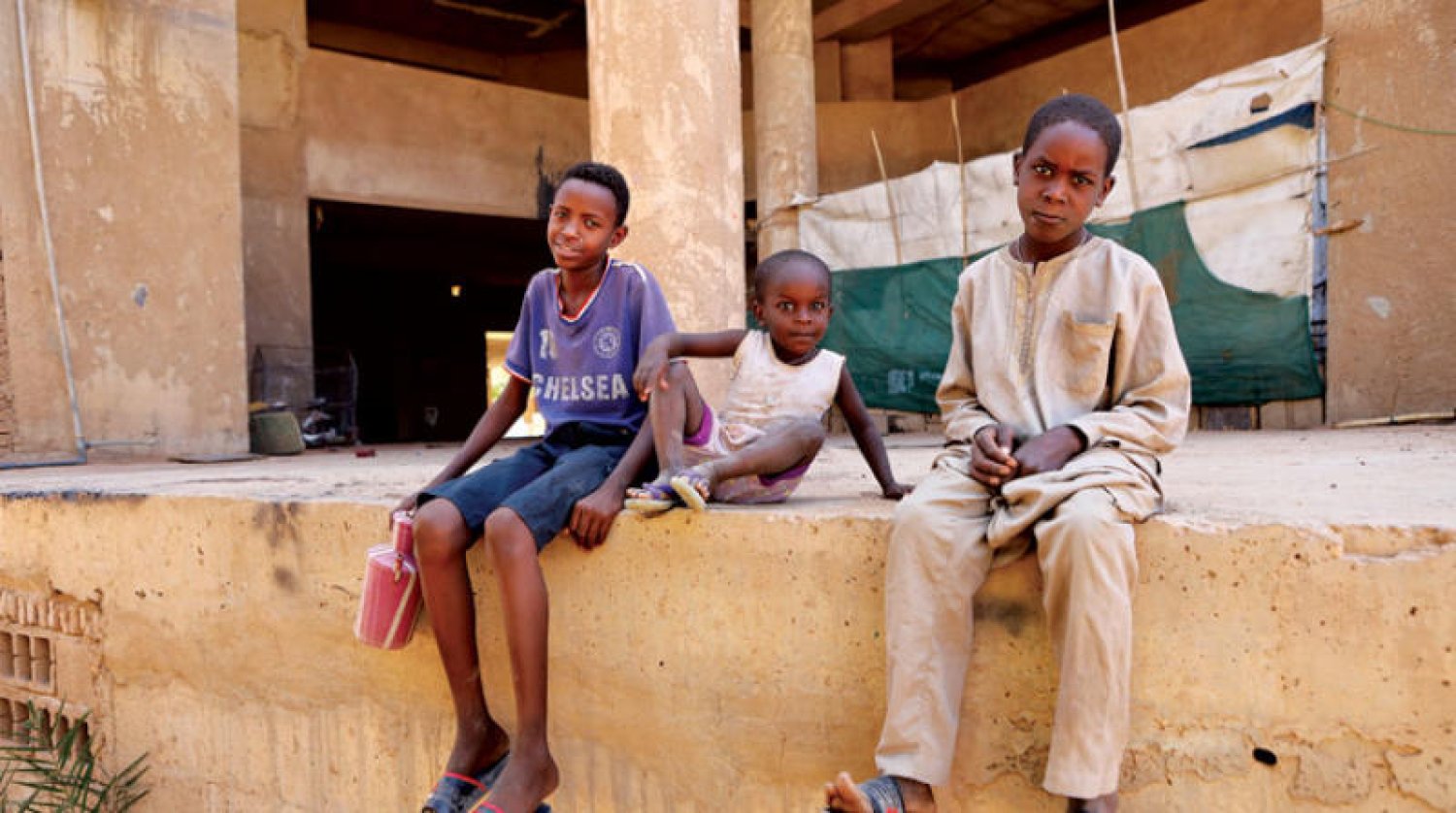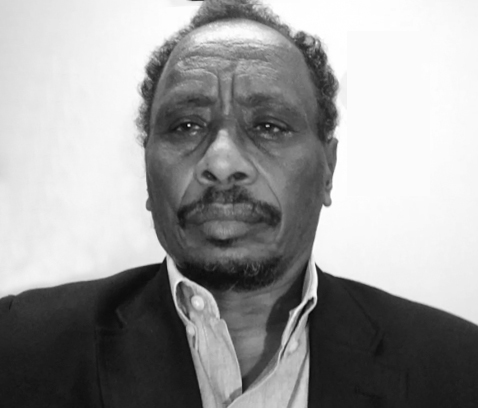
Continuation of the Catastrophic ``Miligisha`` War in Sudan Perpetuates Attacks on the Right to ``Education for Permanent Peace``
Faisal Elbagir
First Orbit:
"Knowledge clears the blindness from its owners heart, just as the moon dispels the darkness. The one with knowledge is not like the ignorant, and the seer is not like the blind without vision. Knowledge brings life to hearts, just as lands revive when touched by rain." - Sabiq ibn Abdullah Abusaeed "Al Barbari"
-1-
I write on the morning of Wednesday, January 24, 2024, which happens to be the "6th International Day of Education." This date, January 24, is recognized annually as the International Day of Education, as declared by the United Nations General Assembly on December 3, 2018. This important historical day is celebrated this year under the theme "Learning for Permanent Peace." Unfortunately, this day arrives while our country is enduring a prolonged war, entering its tenth day on Thursday, January 25, 2024, precisely nine months since it erupted, or rather exploded, in the capital Khartoum on April 15, 2023. This catastrophic "Miligisha" war between the Rapid Support Forces and the Sudanese Army has attacked the "right to education," depriving millions of children and youth of the right to education in a safe and peaceful environment.
-2-
The war has destroyed educational facilities, and the indiscriminate and intentional shelling has targeted educational institutions. As a result of this war, children of school age have lost the opportunity to access schools due to the destructive conflict. Violence against children has increased, security is absent in their areas, and thousands of schools have been forced to close in the most conflict-affected areas. Hundreds of schools have turned into shelters for poor families who managed to escape conflict zones to relatively "safe areas" but struggle to provide for their basic needs in terms of food, water, and shelter in their new circumstances. Consequently, these schools become makeshift homes and temporary shelters for those who have lost their homes and possessions due to the severe war in conflict areas.
-3-
These schools are undoubtedly buildings not designed for long-term or sustainable residence, increasing the suffering of their inhabitants, who have no other choice. Strangely enough, government officials in many displaced cities have used "forced eviction," with the help of the police and tear gas, and the repressive "state violence" in its harshest form, to forcibly evacuate schools in their states, provinces, and localities. This fate awaits thousands of war-displaced men and women, along with their school-age children, who face the inevitable consequence. Their suffering intensifies due to the hardships of living in the open air. This happened, for example, in the state of Al-Qadarif and its capital Al-Qadarif, and the city of Atbara in the state of River Nile, among others. Such oppressive and cruel policies completely lack sensitivity to dealing appropriately with the conditions imposed on displaced individuals seeking refuge in schools and educational institutions, in the absence of well-equipped and scientifically prepared shelters and centers to address such urgent and difficult humanitarian situations.
-4-
Due to this catastrophic war, the "deprivation of the right to education" occurs for children and youth in a country where their number constitutes half of the total population. Since the outbreak of the war on April 15, 2023, the number of internally and externally displaced people has reached 7.6 million "inside and outside Sudan," with 1.5 million crossing borders. In the last ten days alone, the number of displaced people reached 19,600, out of a total of 6.1 million. All of this is documented and available in the latest report issued on Sunday, January 21, 2024, by the United Nations Office for the Coordination of Humanitarian Affairs (OCHA). Undoubtedly, these numbers are a great shock, indicating imminent dangers and a dark future awaiting the countrys inhabitants in Sudan "Fadl."
-5-
It is important to emphasize here that as the catastrophic war continues and mutual bombardment intensifies between the warring parties in Khartoum and other cities and states, the suffering of students increases. This is due to the closure of educational institutions, with some turning into "shelters" if spared from indiscriminate or deliberate bombing. Consequently, the levels of insecurity and anxiety rise, and educational opportunities decrease in the absence of teachers forced to leave their schools due to war. It is essential to recognize that teachers are the pillars of education, essential for its revival and recovery, forming the foundation for the success of the entire educational process. The right to education is a human right, as stated in Article 26 of the Universal Declaration of Human Rights, calling for free and compulsory primary education. The Convention on the Rights of the Child, adopted in 1989, goes further, advocating for access to higher education for all, but alas.
-6-
There are thousands of survivors who managed to escape (displacement) from hot conflict zones and sought refuge, leaving Sudan to neighboring and "non-neighboring" countries. They face numerous challenges, especially the new difficulty of the high cost of education in those countries. Added to other problems is the lack of official documents "certificates" proving the eligibility of students for admission to specific classes. Many parents also face financial constraints and cannot afford the expenses of enrolling their children in "prestigious" schools in host countries. The difficulties faced by girls and boys, especially the length of adaptation and integration in new educational environments, are compounded. Other challenges include language, culture, different teaching methods, and curricula in those countries, all difficulties imposed by this catastrophic war that forced millions to flee conflict areas without prior planning to leave their homelands. This is a major disaster awaiting the new generations of Sudanese, both inside the country and in displacement and refugee areas.
-7-
In this tragic reality, we find the "emperors" of the catastrophic "Miligisha" war parties preoccupied with recruitment, mobilization, and identity-based, ethnic, and regional fervor. They show no sense or attention to the conditions of children and youth. Continuous campaigns recruit youth under the age of eighteen, many of them in the basic education stage. This means their transformation into fighters instead of receiving education. This is a crime committed and persistently pursued by those who ignited this war, disregarding the future of children. It is enough here to echo the wise words of Nelson Mandela: "Education is the most powerful weapon which you can use to change the world."
-8-
There is another war between the army and the Rapid Support Forces unfolding strongly in the arenas of satellite channels, especially those in Arabic. The sterile "Byzantine" debate continues among what those channels call "political analysts" and "experts" in Sudanese affairs, most of them residing in nearby and distant "immigrant" countries. They speak and elaborate in a language far removed from reality, a "justifying" language that is cold and detached. They discuss everything except the "suffering" of people, the burning embers of war, without addressing their pains and tragedies. Many of these "experts" engage in repetitive justifications, revealing blatant biases toward one of the conflicting parties. They fail to diagnose the disease or propose possible therapeutic solutions. Instead, most of them incite people to continue and escalate the war. Not satisfied with inciting the continuation of the war, they insist on pouring more "oil on the fire" of the destructive war. They practice a discourse of hatred, discrimination, and blatant racism, without intervention from most presenters of these programs. In this context, we hope and wish for our colleagues in the truth-seeking profession to be aware of the danger of turning their programs into tools for destruction and wasting the values of freedom of expression and journalism by promoting a discourse of hatred, racism, and discrimination against the other and the different.
Final Note:
"How many children, with no mother, no home, and no needs, poor them, not dreaming. Their schools remain closed, with drawers in front of them. They dont feel the taste of Eid, whether it passed or not. Wandering the streets, and fever is their companion. When hunger sees them, the morsel is needed. The wind roars at night, quenching its thirst like a jug." - Mahjoub Sherif.
Know that knowledge is the highest rank,
A more precious acquisition and a prouder pride.
So, tread the path of those who acquire it,
For sovereignty is obtained through writing.
The learned, called the ink, indeed
Named it after the carrier, the bearer of the ink.
And the concealed pens will reach their owners,
Revealing what is not revealed by armed forces.
faisal.elbagir@gmail.com


